-
Padur, Kelambakkam (OMR), Rajiv Gandhi Salai, Chennai - 603 103.
-
Campus: 044 69034444 / 7824080621 Admission: 044 24469714 /9789885555
Padur, Kelambakkam (OMR), Rajiv Gandhi Salai, Chennai - 603 103.
Campus: 044 69034444 / 7824080621 Admission: 044 24469714 /9789885555
The Microbiology department was established in the year 1995. Initially we had UG course only. Later on we got affiliation to conduct PG Applied Microbiology in the year 2000. We are the pioneer department to start the M.Phil. course in our college. We got the approval in the year 2010 to conduct the Full time M.Phil. Microbiology. We got approval in the year 2018 to conduct Full time Ph.D. Microbiology
.About UG
B.Sc. Microbiology is an important one that provides a lot of career scopes to the students after its successful completion.
Microbiology: The course teaches students applications of the study of living organisms to make products that can be of benefit to humankind.
Diary Microbiology: Dairy Microbiology includes necessary training and guidance for the processing, packaging, transportation, storage and distribution of all the products related to dairy in one way or the other. This field is dependent on the principles of other branches of science including bacteriology, nutrition and biochemistry.
Agricultural Microbiology: This course also deals with plant-associated microbes, plant and animal diseases. It also deals with the microbiology of soil fertility, such as microbial degradation of organic matter and soil nutrient transformations.
Biochemistry: Students get an insight into biological molecules, proteins and, lipids. When applied, Biochemistry professionals play a major role in better agricultural produce, nutrition and, treatment of diseases.
Food Microbiology: Food Microbiology scientists research on improving food quality, its preservation and, enhancing its nutrition value.
About PG
M.Sc., Microbiology encompasses numerous sub-disciplines including virology, Parasitology, mycology and bacteriology.. Broadly speaking, it brings together the fundamental research on the biochemistry, physiology, cell biology, ecology, evolution and clinical aspects of microorganisms, including the host response to these agents and aims at putting concepts of both these subjects together, in a bid to enrich our lives and make innovative developments.
About M.Phil
The M.Phil or Master of Philosophy in Microbiology Programme was started in the year 2010. M.Phil Microbiology is a One year research course, involving an advanced study of the cellular and bimolecular processes for development of a variety of technologies and products that contribute to improving people’s lives and health.
About Ph.D
Ph.D in Microbiology is a three year Doctoral Degree course for full time candidate without M.Phil., Whereas with the candidate have the M.Phil degree can finish in two years. Aspiring candidates having a scientific aptitude and keen interest in biological sciences are ideally suited for the course.
Eligibility Criteria
The basic eligibility for applying to the course is 10+2+3+2 qualification in the science stream, completed from a recognized institution.
Admission for Ph.D. programme can be made two times in a year, i.e., January and July. Admission to Ph.D. programme shall be completed in the first month itself in each session. Registration for Ph.D. must be completed within one month from the date of granting admission. The College conducts separate admission processes for research programs viz. Master of Philosophy (M.Phil) and Doctor of Philosophy (Ph.D). The degree can be obtained under Full Time, Part Time (Internal), and Part Time (External) mode.
For Ph.D courses, candidates must possess a post-graduate degree in the relevant stream. The College conducts entrance examination for selection of candidates to the research programs. Candidates who have cleared UGC/CSIR NET are exempted from appearing in the entrance examination.
To promote the analytic knowledge of the student in accordance with the demands of the present world and bridge the gap between the industries and the education that will equip the student and develop the character and personality of the student making them complete in integrity and morality.
Microbiology is an application oriented subject, which deals with Industrial and Medical oriented papers. The course affords job opportunities in the field of Food and Beverage industry, Medical Laboratories, Pharmaceutical Industry, Distilleries, Research Laboratories, Enzyme production units, Vaccine production Industry, Milk & Dairy products, Forensic Science, Mineral Water plants, Bio-fertilizer industries, Single Cell Protein Production unit, Mushroom Production unit and Effluent Treatment Plants etc.,
| I Year | II Year | III Year |
|---|---|---|
| Semester - I | Semester - III | Semester - V |
|
Language-I |
Language – III |
Medical Bacteriology |
|
English – I |
English – III |
Medical Mycology & Parasitology |
|
Fundamentals of Microbiology and Microbial Diversity |
Molecular Biology |
Medical Virology |
|
Major practical I : (Fundamentals of Microbiology and Microbial Diversity) |
Major Practical – III : Molecular Biology |
Major Practical – V : Medical |
|
Allied-I: Basic and Clinical Biochemistry |
Allied - III Clinical Lab Technology |
Biotechnology and Genetic Engineering |
|
NME- I: Social And Preventive Medicine |
Allied Practical III – Clinical Lab Technology |
Biotechnology and Genetic Engineering |
|
Foundation Course - I |
Soft Skill - III | |
| Semester - II | Semester - IV | Semester - VI |
|
Language-II |
Language – IV | Environmental Microbiology |
|
English –II |
English – IV | Food & Dairy Microbiology |
|
Microbial Physiology and Metabolism |
Soil & Agricultural Microbiology |
Major Practical VI: Environmental, Food & Dairy Microbiology |
|
Major Practical – II : (Microbial Physiology and Metabolism) |
Major Practical – IV: Soil & Agricultural Microbiology |
Industrial and Pharmaceutical Microbiology |
|
Allied- II: Bioinstrumentation |
Allied IV- Clinical Biochemistry |
Microbial Marketable products |
|
NME-II: Nutrition & Health Hygiene |
Allied Practical - IV Clinical Biochemistry |
Extension Activity |
|
Foundation Course - II |
Soft Skills – IV |
|
|
|
Environmental Studies |
| I Year | II Year |
|---|---|
| Semester - I | Semester - III |
| Microbial Taxonomy | Microbial Genetics |
|
General Microbiology and Laboratory Animal Science |
Genetic Engineering |
| Immunology | Molecular Biology |
|
Practical - I: General Microbiology, Physiology and Immunology |
Practical III – Microbial Genetics, Molecular Biology & Genetic Engineering |
| Elective – I: Metabolic Pathways |
Elective – IV: Soil and Agricultural Microbiology |
|
Elective – II: Microbial Diversity Microbial Taxonomy |
Extra Disciplinary – II: Environmental Biotechnology |
| Soft Skill - III: Managerial Skills | |
| Soft Skill – I: Language and Communication | Internship |
| Semester - II | Semester - IV |
| Virology | Food, Dairy and Environmental Microbiology |
| Systematic Medical Bacteriology |
Practical IV -Soil, Agricultural, Food and Environmental Microbiology |
| Mycology and Parasitology | Project |
|
Practical - II Systematic Bacteriology, Mycology, Parasitology and Virology |
Elective - V: Research Methodology |
|
Elective – III: Industrial & Pharmaceutical Microbiology |
Soft Skill – IV: Computing Skills |
|
Extradisciplinary – I: Biostatistics & Bioinformatics |
|
| Soft Skill – II: Spoken and Presentation Skills |
| Part I | Subject |
|---|---|
| Paper I | Research Methodology ( Common Syllabus) |
| Paper II | Advanced paper in Microbiology (Common Syllabus) |
| Paper III | Background paper of the proposed Dissertation (Syllabus framed by the institution concerned) |
| Part II | Dissertation |
Conducting Certificate course on "Vermi Composting Technology" for Life Science students from 2014 - Till Date.
Dr Sultan Ahmed Ismail, Director Nature Eco club Palavakkam and Eminent Scientist in Vermicomposting Technology, visited HCAS Vermi compost unit during Waste to Value program on 04th July 2017.
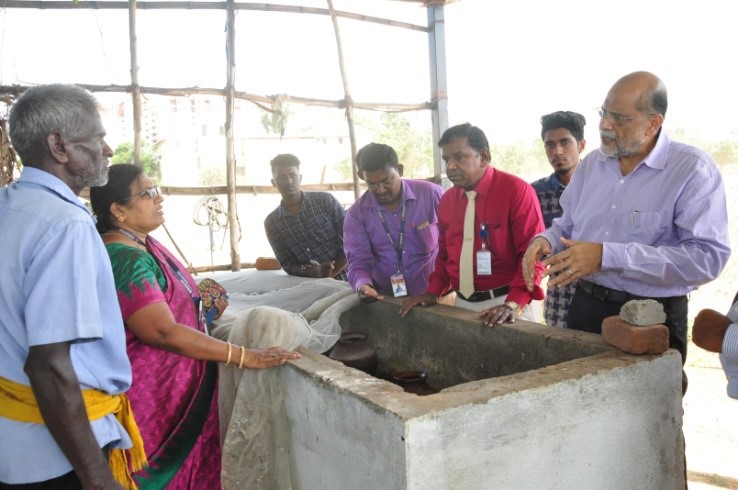
The department has good infra-structure.
Need-based e-resources are the highlights of the department.
It has two well-equipped state of the art laboratories.
Includes PCR, ELISA, Phase Contrast Microscope, Dark Field Microscope, Florescent Microscope, CO2 incubator, BOD & COD incubator, Cooling Centrifuge, SDS PAGE, Western Blotting and Cell Culture Facility.









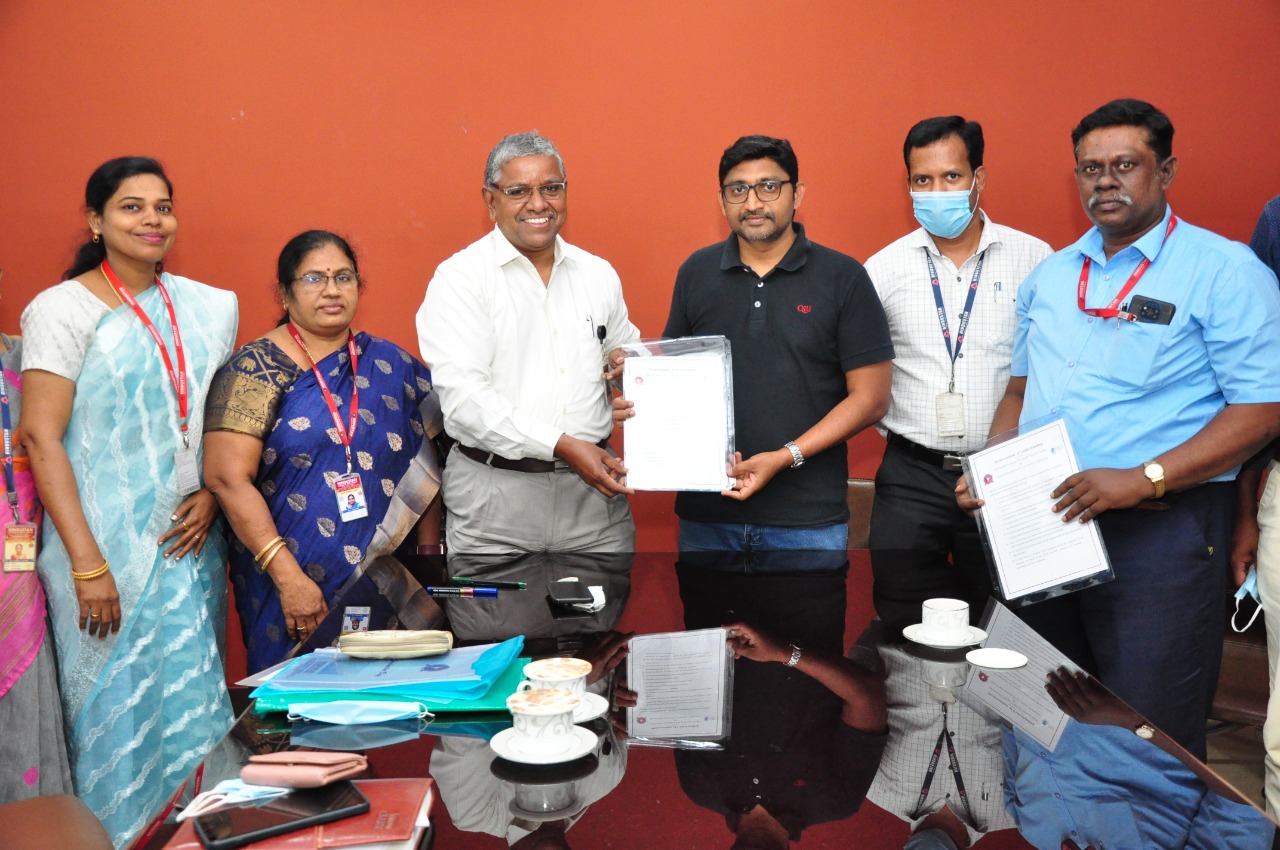
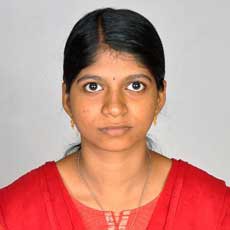
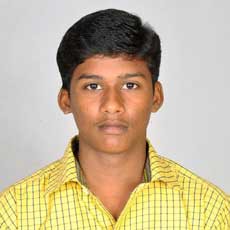
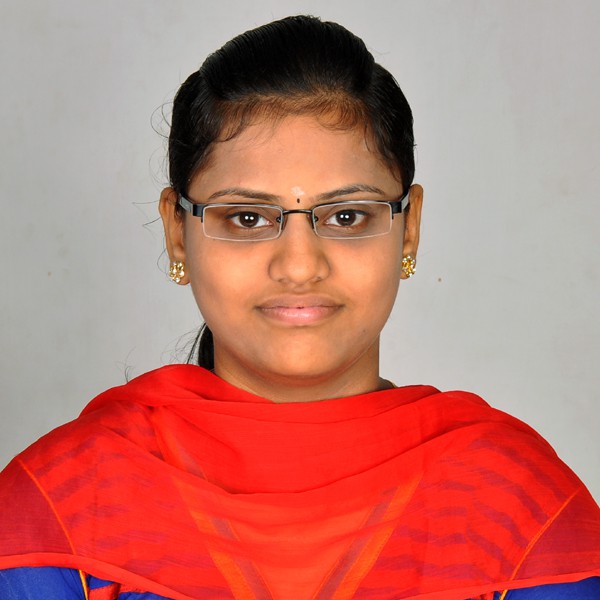
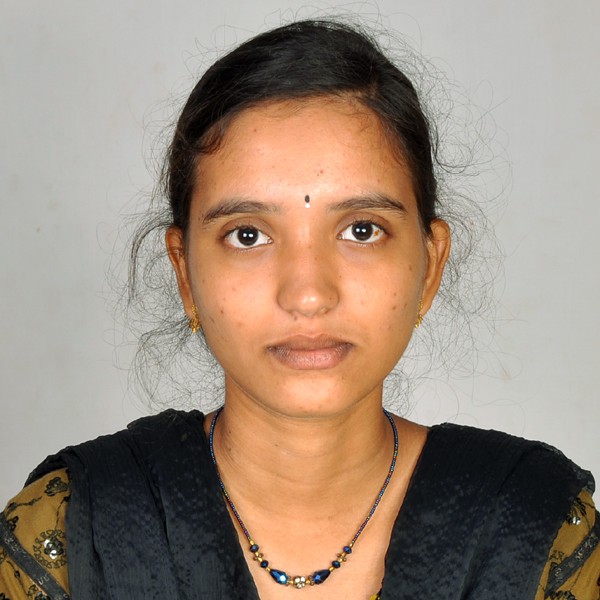
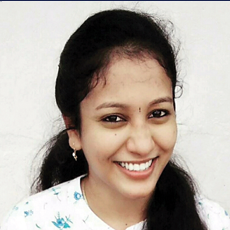
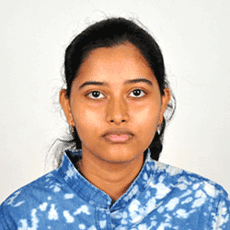











B.Sc., M.Sc. Applied Microbiology, M.Phil. and Ph.D. are the courses. Admissions for Under Graduation (B.Sc.), Post Graduation (M.Sc.) and M.Phil., have started, and for Ph. D., in the month of January and July.
The college is affiliated to University of Madras, and follows the Choice Based Credit System, with semester system of education, having internal and external evaluation pattern.
Yes, surely it is a good career option. The overall job outlook for Microbiologist careers has been positive since 2004. Vacancies for this career have increased by 32.13 percent nationwide in that time, with an average growth of 5.36 percent per year. Demand for Microbiologists is expected to go up, with new jobs.
Yes. Vermicomposting, Medical Coding and Clinical Research are conducted.
Government SC/ST Scholarships and low income group stipend through State Education Department is available. In addition to that, alumni fee concession (50% of tuition fee) is provided to students to pursue post graduation programmes in our College.
B. Sc. Microbiology, M.Sc. Applied Microbiology, M. Phil. and Ph. D. are the courses offered.
General Microbiology, Industrial Microbiology, Environmental Microbiology, Medical Microbiology, Mycology, Parasitology, Virology, Soil Microbiology, Immunology and Molecular Biology, are the different subjects that are dealt with, in the above mentioned courses. This course also includes application-oriented subjects like Bioinstrumentation, Biostatistics, Bioinformatics, and Research Methodology, which pave way for students to pursue higher studies in various fields.
Admission process for B. Sc., M.Sc., and M. Phil., programs start in the month of April, and for Ph. D. in the months of January and July.
Yes, it is a good option. Employment of Microbiologists is projected to grow 5 percent over the next ten years, and more microbiologists will be needed to contribute to basic research, solve problems encountered in industrial production processes and monitor environmental conditions, to ensure public health and safety.
Job Prospects
Quality Controller, Medical Laboratory Technician
Medical Coder
Medical Biller
Writer
Research Assistants
Scientists
Medical representative
Microbiologists are mostly hired in the following fields:
Higher education institutions.
Industry – water and biotechnology companies,
Food and drink, toiletries,
Petroleum, pharmaceuticals.
Environmental organizations.
Public health organizations.
Healthcare organizations.
Forensic science laboratories.
Publicly funded research organizations.
Students can work as Technicians Hospitals and Quality control officer cum scientist in Pharmaceutical industries, Food processing industries, Pollution control department, Agricultural department for organic farming and biofertilizers. Students can start their own company in the field of microbiology.
Government SC/ST Scholarships and low income group stipend through State Education Department is possible. In addition to that, alumni fee concession (50% of tuition fee) is provided to HCAS students who pursue Masters Program in our College.
There is a vast scope for Microbiology, since it is involved with the diverse fields like Medicine,Pharmacy, Diary, Food Industry, Clinical Research, Water Industry, Agriculture, Chemical Technology and Nanotechnology, Recombinant DNA Technology, Vaccine Production, Biodegradation Technology, Bio Fertilizer Technology, Waste Water Treatment Technology. Higher studies like M. Phil., Ph.D. can be pursued or Scientist positions can be assumed after Master’s Program in Microbiology. After clearing CSIR Exam one can become a Junior Research Fellow/Senior Research Fellow.
M.Sc., Applied Microbiology has good scope in India and abroad. Microbiologists can work in Hospitals, Clinical Laboratories, also find opportunities in R&D departments in various pharmaceutical companies, or can even continue research programs like M. Phil / Ph.D.
Discovery of new microorganisms. Microorganisms undergo rapid changes in their nature (wild type to mutant) which results in the emergence of new diseases like COVID – 19. Microbiologists have to respond to these threats. Hence Microbiologists should find ways to stop the spread of established, as well as emerging diseases.
Microorganisms can be used for the welfare of the community by using them in various industrial processes and enhanced environmental control.
Sequencing the genomes of many newly discovered microorganisms.
Discovery of vaccines for various newly emerging pathogens, in order to prevent the spread of infectious diseases among the community.
Microorganisms are essential partners with higher organisms. Greater knowledge of symbiotic relationships can help improve our appreciation of the living world. It would also help in the improvement of health of plants and livestock.
Micro organisms are used in dairy industries for making of yoghurt, cheese, butter milk and also it is used as Probiotics.
The basic eligibility is that candidates essentially should have secured at least 55% marks at the Post Graduate level in Microbiology.
Yes. The concerned department will conduct a Common Entrance Test.
M. Phil. involves doing your own independent project and can be a step towards doing Ph. D. which reduces the number of years of completing Ph.D. Also, it enhances your chances over others who don’t have, for getting a job.
LIST OF COMPETITIVE EXAMS:
CSIR NET EXAM
GATE Exam
JGEEBILS (Joint graduate entrance examination for biology and interdisciplinary life sciences)
AICE JRF/SRF (PGS) – All India competitive examination
ICMR – JRF
ARS (Agricultural research scientist)
Bureau of Indian Standards – BIS exam
DBT- BET
The minimum eligibility to do Ph. D. is the successful completion of Post-Graduation from Life Science stream, from a recognized University with a minimum of 55% marks. The Program is approved by the University of Madras, and is a 3 to 5 year Doctoral Program.
Higher education institutions
Industry – water and biotechnology companies.
Food and drink, toiletries.
Petroleum, pharmaceuticals.
Environmental organizations.
Public health organizations.
Healthcare organizations.
Forensic science laboratories.
Publicly funded research organizations.
Bacteriologists
Clinical microbiologists
Environmental microbiologists
Industrial microbiologists
Mycologists
Parasitologists
Virologists
Holding a doctorate will certainly increase the salary earnings potential per year, than those with just a Master's degree. Moreover, this program will make you an eligible candidate to be placed in any top academic positions in research & development, depending upon the area of research and your technical skill.
